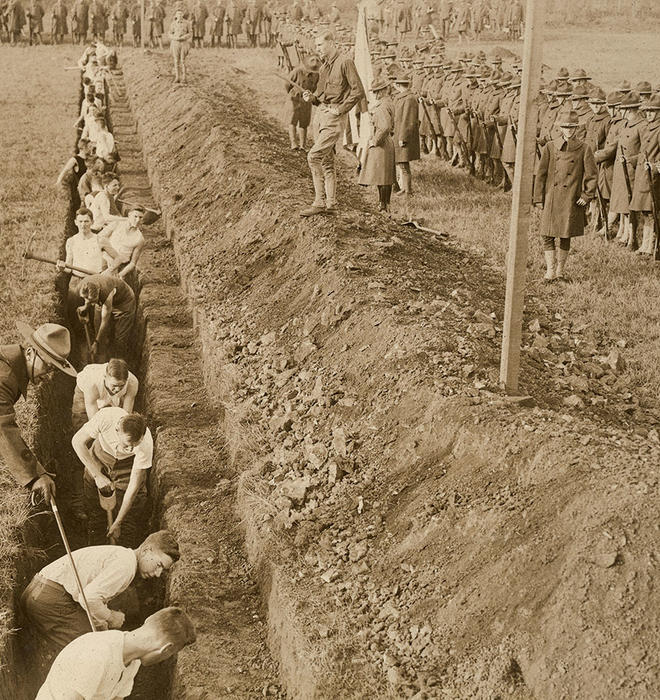
One hundred years later, all remains quiet on the Western Front.
An area known as the Zone Rouge running from Lille to Verdun, scene of some of the heaviest fighting of the First World War, is fenced off to this day. Entire towns within it were abandoned, the surrounding fields and collapsed trenches filled with human bones and tons of unexploded ordnance. It remains too dangerous to enter, the soil still saturated, even now, with the chemicals of war: mercury, lead, chlorine, and arsenic. If, as the wartime poet Rupert Brooke suggested, there is some corner of a foreign field that is for ever England, there are dozens of square miles of northeastern France that will remain uninhabitable for hundreds of years.
Princeton opened its campus to the military in 1918. Above, students in the Army training school practice an essential skill: trench-digging.
A century after it ended with the Armistice of Nov. 11, 1918, the effects of the War to End War still seep into modern life — in literature, politics, attitudes toward freedom and civil liberties, and especially in the geopolitical map. To mark the anniversary, PAW sought the views of several faculty members and alumni about World War I’s enduring impact and reviewed how some Princetonians thought about the conflict at the time and afterward.
Eric Yellin *07, Professor, University of Richmond
For the United States, World War I was a war fought by a Progressive state through Progressive means. We can find strains of Progressive thoughts throughout the war experience — in the application of scientific research, the push for women’s suffrage, Prohibition, a seat at the table for the labor movement, the expansion of government in the lives of citizens, and even immigration restrictions and the idea that the state can play a role in forming the “ideal” American. The war became a way for Progressives, including Woodrow Wilson, to use federal muscle to achieve their goals.
Wilson was proud of the fact that little of the war mobilization was coercive, as he defined that word. Conscription wasn’t called “the draft,” for example; it was called “selective service.” The idea that we could convince people through reason and achieve unity through knowledge and communication was a very Progressive idea. So from Wilson’s perspective, the massive publicity campaign in support of the war effort — think of those Uncle Sam “I Want You” posters — was not propaganda, but information. We recognize today that it was one of the best examples of propaganda in American history.
“I came to see the First World War … as the great seminal catastrophe of this century —the event which … lay at the heart of the failure and decline of Western civilization.”
Diplomat George Kennan ’25
Stephen Kotkin, John P. Birkelund ’52 Professor in History and International Affairs
World War I destroyed the existing world order, including the rickety Romanov dynasty in Russia. That czarist system was failing before 1917, but the war broke it wide open. One of the reasons the czarists had gone to war, in fact, was to shore up their system with patriotism, which proved to be an illusion.
The far left had seized power in other countries before, as in the Paris Commune of 1870, only to be driven out fairly quickly. But World War I exposed a weakness in the forces of order, which proved unable to kick out the Bolsheviks. It’s false to say that there would have been no Russian revolution without the war, but there would have been no Bolshevik takeover without it.
Most of the large empires were under strain before the war: the Habsburg Empire, the Ottoman Empire, the Russian Empire, and the German Empire. All of them experienced massive crises during the war, but not all were destroyed. From a territorial standpoint, the British Empire got bigger, and so did the French, but they too were changed in ways that would take a while to become apparent. Colonial subjects, who had been dragged into the war, began to make demands. If they were good enough to fight and die, why weren’t they good enough to be citizens? When you mobilize the whole society, it increases your dependence on the whole society.
The Paris peace conference was based on an anomaly and a misconception. The problem was that German power and Russian power, for the only time since 1870, were both flat on their backs simultaneously. So the peace treaty was imposed on Germany while excluding Russia, which doomed it from the start. Either Russia or Germany was going to come back to be a major power, and in fact both did so within a generation.
The world has to accommodate its great powers. Look at China and Russia today. Could we impose an enduring system on those countries against their will? They will want a say in how the world is organized. So crusading idealism and Wilsonian universalism look wonderful in theory, but in practice they run up against the realities of Great Power politics. The world is a stubborn place.
Michael Reynolds, Associate professor of Near Eastern studies
For the Ottoman Empire, World War I was part of a longer struggle for the preservation of the empire that entered its final phase in 1911 with the Italo-Ottoman War for Libya, moved through the Balkan Wars and World War I, and concluded in 1923 with the Turks’ victory in what they call their War for Independence. That long struggle was bitter and traumatic, and though it resulted in the destruction of the empire, it did succeed in maintaining Muslim sovereignty in Anatolia, an outcome that would have stunned observers just 10 years earlier. A major lasting consequence of the greater war was the effective annihilation of Christians and Christianity from Anatolia, formerly a cradle of Christian civilization.
Initially, the Ottomans hoped to stay out of World War I. Their decision to enter it in October 1914 had major consequences for others. Their involvement prolonged that war by one to two years. By extending the fighting and blocking the Black Sea route to Russia, thereby blocking grain exports to and supplies from Britain and France, the Ottomans helped ratchet up the pressure on Russia. The disastrous Gallipoli campaign failed to break that stranglehold, and in 1917 Russia succumbed to revolution, changing the course of global history.
The Ottoman empire was more than 600 years old in 1918, and the demise of the Ottoman order in what we now call the Middle East continues to reverberate. That order had allowed for some form of coexistence among the peoples of the Middle East and had, under the banner of Sunni Islam, provided a shared identity to the Sunni Turks, Arabs, Kurds, Albanians, and Circassians, the overwhelming majority of the empire. The loss of the nominal Muslim unity that the Ottoman order had provided for centuries was, for many, profoundly disorienting. The new order, imposed as it was largely from the outside and premised on unfamiliar and questionable principles, generated limited legitimacy. The rise of a Wahhabi state, Saudi Arabia, was another, and very different, consequence of the war and the destruction of the Ottoman order.
“And each day one died or another
died: each week we sent out thousands
that returned hundreds
wounded or gassed. And those that died
we buried close to the old wall
within a stone’s throw of Perigord
under the tower of the troubadours.
And because we had courage;
because there was courage and youth
ready to be wasted; because we endured
and were prepared for all the endurance;
we thought something must come of it:
that the Virgin would raise her child and smile;
the trees gather up their gold and go;
that courage would avail something
and something we had never lost
be regained through wastage, by dying,
by burying the others under the English tower.”
John Peale Bishop 1917
From “In the Dordogne”
Meredith Martin, Associate professor of English
The war inspired a lot of people to write poetry. Poetry was seen as something a soldier could do in the trenches, mail back home, and maybe even see in print before he was sent over the top. This explosion of poetry in newspapers provoked a backlash from what you might call the literati or the high-minded modernists. In 1936, William Butler Yeats refused to include any of the World War I poets when he edited The Oxford Book of Modern Verse. He called Wilfred Owen “unworthy of the poets’ corner of a country newspaper” and denounced his work as overly sentimental, “all blood, dirt & sucked sugar stick.”
Some of this was a rejection of style — Yeats cringed at Owen using archaic words like calling poets “bards” or women “maids,” though that is the way their generation had been taught poetry in school. But the high modernists also objected to the insistence that soldiers’ experience is not universal, that not everyone could share the horrors those men on the front lines had witnessed. Such separation between the home front and the front lines had been going on since Homer’s time, but the carnage of World War I was new, both in scale and in form.
Still, that sense that soldiers had an unknowable experience remained, despite attempts by modernist poets to aestheticize the war experience. Poetry was also commissioned by government war offices, which led some to see it as propaganda and thus be very skeptical of it. In the 1920s, as English became a subject of university study, the aftermath of all of that popular war writing played no small part in the consolidation of a higher taste for poetry and the discarding of popular poetry that until then had been the engine of culture. The divide between popular literature and high art grew even wider than it had been before the war.
Everything changed because of the war, but people tend to focus too much on a particular kind of violent experience, namely the loss of young men in the trenches on the Western Front. If we limit our understanding of the war to that narrative, we overlook the other massive and detrimental shifts in the world, especially on the Eastern Front and in the Middle East, that contributed to the postwar disillusionment. There is a lot more to look at.
After World War I, the idea of England changed, and the idea of America took its place. When England emphasizes its “corner of a foreign field” and the imagery of World War I, they are mourning the loss of England as they had known it. For Americans, World War II is the most important war. We emphasize the beaches at Normandy, which solidifies an idea of America that in turn justified the rest of the global movements that happened afterward in Korea and Vietnam and even in the War on Terror. It was an idea of America that started in the First World War, was solidified in the Second World War, and propelled us to where we are today.
“Here was a new generation, shouting the old cries, learning the old creeds, through a revery of long days and nights; destined finally to go out into that dirty gray turmoil to follow love and pride; a new generation dedicated more than the last to the fear of poverty and the worship of success; grown up to find all Gods dead, all wars fought, all faiths in man shaken …”
F. Scott Fitzgerald 1917
This Side of Paradise
Gen. David Petraeus *87, Former director, Central Intelligence Agency
World War I transformed how militaries and societies thought about warfare and the manner in which they conducted it.
The war was one that became total, with entire countries mobilized to fight it. Governments used new media to mobilize their societies for war, vilifying their enemies and creating hatreds that had often been absent from past conflicts.
Although the defense — in the form of machine guns, barbed wire, massive fortifications, trenches, grenades, and improved artillery — dominated most of World War I, the fighting actually witnessed considerable tactical and technical innovations despite the lack of significant advances on the ground. Several major offensives toward the end of the war hinted at the future offensive power of tanks and armored vehicles, especially when coupled with close air support by fighter-bombers and supported by mobile artillery and motorized logistics, all controlled by newly introduced radio communications. This combination of weapons and tactics would transform the battlefields of World War II.
World War I saw the first use of aircraft in combat. It also saw the introduction of increasingly capable submarines and aircraft carriers that would transform naval warfare. Both air and naval platforms waged increasingly “unrestricted warfare” as well, foreshadowing the targeting of civilian naval vessels and the strategic bombing campaigns of World War II.
It was in the trenches of the First World War that poisonous gas was used for the first time and that the trauma then known as shell shock emerged on a significant scale. The terrible wounds inflicted by the weapons of World War I also led to advances in battlefield surgery and postwar medical treatment, including advances in prosthetic limbs.
Societies dealt with the trauma of the Great War in different ways. Some people, especially in Great Britain and France, reacted to the terrible casualties by promoting pacifism or, in the case of the United States, isolationism. Germany and Italy, in time, embraced militarism.
The United States was already firmly established as the world’s strongest industrial power, but World War I transformed it into an increasingly capable military power. Additionally, the considerable role President Wilson played in the negotiation of the Treaty of Versailles and the establishment of the League of Nations demonstrated the arrival of the United States as a global political actor, although the Senate ultimately did not ratify the treaty and the United States did not join the League.
In sum, World War I marked America’s entry into the cast of the great powers, a position it continues to inhabit to this day.
Joshua Guild, Associate professor of African American studies
There was a spirited debate among African American political leaders and intellectuals as the war unfolded about what their position should be. Should they support the war effort? Should they fight? Remember, the Civil War and the overthrow of Reconstruction were still within living memory.
Of course African Americans did fight, and that generation came back from the war with a heightened sense of expectation. They had risked their lives, and now it was time to claim what was theirs. That was the implicit bargain of enlistment in the first place. What happened instead was a great spike in racial violence. In the so-called Red Summer of 1919, there were horrific race riots across the country.
Some black veterans were radicalized by the war and what they encountered at home. Many became leading figures in black radical organizations, probably the best known of which was the African Black Brotherhood, an underground socialist organization. The war experience pushed different people in different ways, but the common thread was heightened expectation, met on the homefront with reaction.
“America, founded by exiles for conscience’s sake, their refuge in all generations, gives her sons the option of service in the trenches or imprisonment and thereby wounds her very soul as no outward victory of Prussian power can do. The heretic may be very irritating, he may be decidedly wrong, but the attempt to choke heresy or dissent from the dominant opinion by coercing the conscience is an incalculable danger to society. If war makes it necessary, it is the last count in the indictment against war.”
Norman Thomas 1905 Presbyterian minister and later six-time presidential candidate “War’s Heretics, a Plea for the Conscientious Objector,” August 1917
Risa Goluboff *03, Dean, University of Virginia School of Law
Wartime is often a period both of extraordinary new forms of governmental power and oppression and also increased organization and agitation. You see all of those things in World War I. This occurred at the state and local level as well, in legislation outlawing teaching the German language in the schools or even waving a red flag, which was seen as a symbol of communism. There was also an increase in mob violence.
Progressivism was a call to use governmental power. That is not necessarily great for individual liberty. It can emphasize the community, which doesn’t necessarily leave as much room for protection of minority rights. Many Progressives, including Wilson himself, were also proponents of Jim Crow and segregation.
On the other hand, the ACLU was born during the war. Again, that’s not surprising. Agitation and suppression tend to have a symbiotic relationship; each propels the other forward. Most legal scholars root contemporary First Amendment doctrine in the post-World War I cases upholding convictions under the Espionage and Sedition Acts, which were enacted during the war. Those decisions vindicated the machinery of repression, but the machinery of agitation and organization that the ACLU created in response to them was also ultimately vindicated.
“Again and again, my fellow citizens, mothers who lost their sons in France have come to me and, taking my hand, have shed tears upon it not only, but they have added, ‘God bless you, Mr. President!’ ... I advised the Congress of the United States to create the situation that led to the death of their sons. … Why should they weep upon my hand and call down the blessings of God upon me? Because they believe that their boys died for something that vastly transcends any of the immediate and palpable objects of the war. They believe, and they rightly believe, that their sons saved the liberty of the world.”
Woodrow Wilson 1879 Pueblo, Colo., Sept. 25, 1919 (his last public speech)
A. Scott Berg ’71, Author
Woodrow Wilson believed that if America entered the war, we could be the authors of the peace. For years he had preached neutrality, but ultimately he took us into the war, and he took that decision very seriously.
His speech to Congress seeking a declaration of war against Germany introduced a moral component to American foreign policy that has been there ever since. America had not been attacked. We were protected by large oceans. Yet Wilson suggested that the world had shrunk and that something that happened in Paris, France, could affect Paris, Texas. How could we look at Germany trample over Belgium and do nothing? We now had to think globally.
Wilson’s declaration, though, raised questions that every president since 1917 has been forced to address. Is the United States meant to be the world’s policeman? Do we have a right or a duty to impose our beliefs about democracy on other countries? In the 1920s, we pulled back and returned to isolationism. But Franklin Roosevelt, who was a disciple of Wilson’s and served as his assistant secretary of the Navy, led us into World War II fighting for many of the same ideals that Wilson articulated in 1917.
The war had far-reaching effects at home, many of which have not been fully appreciated as war-related. Take women’s suffrage: How could we be fighting for freedom abroad when half of our own population could not vote? Even developments as seemingly unrelated as daylight saving time and cloture to end filibusters came about, directly or indirectly, because of the war.
Yet for Wilson, it all came back to the overwhelming sense of responsibility he felt for bringing the United States into the war. He had made a promise that this would be the war to end all wars, and the only way he could see to achieving that was to create a League of Nations to preserve the peace.
Wilson’s devotion to the League was everything for him, so he made compromises in Paris in order to keep it in the treaty. I think Wilson did the best he could under the circumstances. On the whole, it was an impossible treaty, but for another generation at least some pieces of it held together. The map of the world today still goes back in large measure to the one they drew at the peace conference. They got a lot right, and had Georges Clemenceau and David Lloyd George listened more to Wilson they would have gotten a lot more right. Wilson warned them not to punish Germany. If you do, he predicted, we will have to fight another world war within 25 years.
And you can almost count to the day how accurate he was.
Mark F. Bernstein ’83 is PAW’s senior writer.




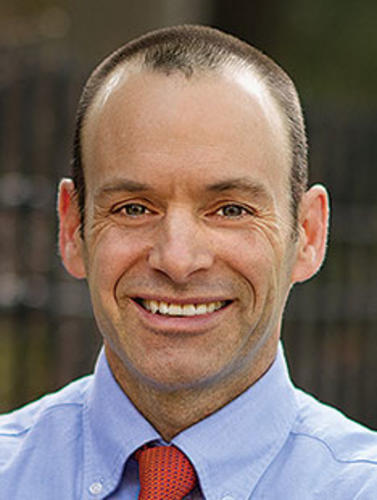


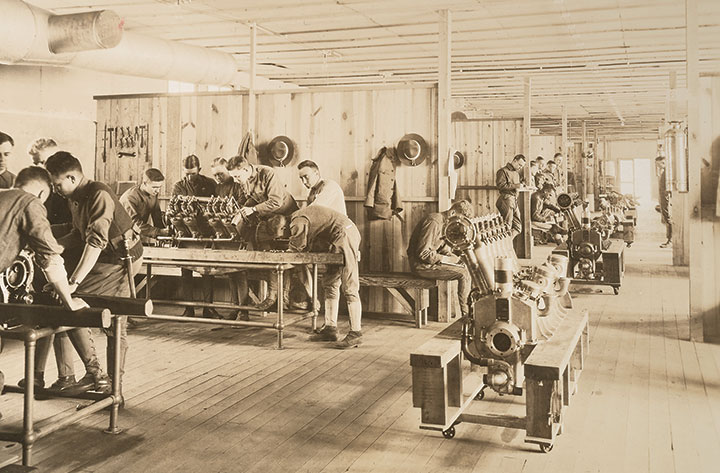
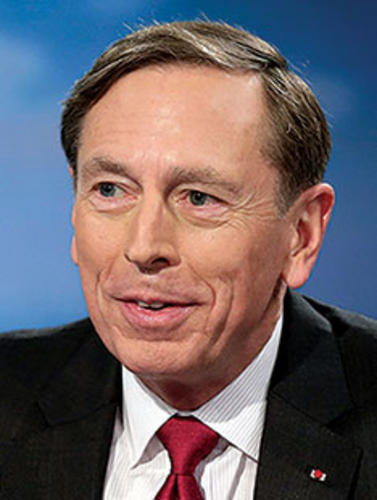

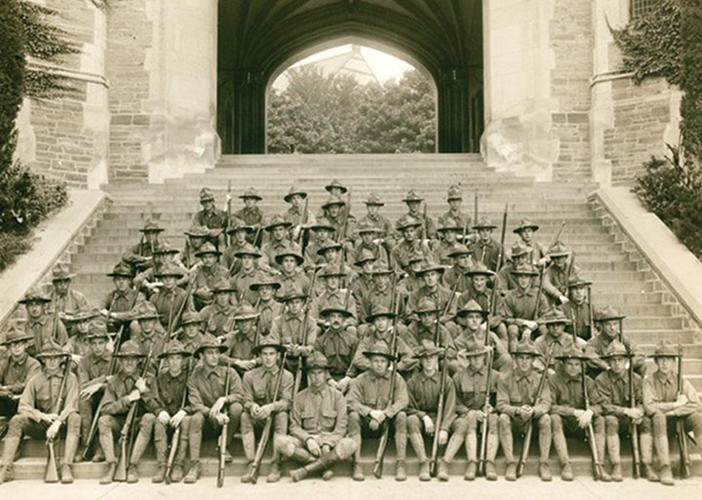






2 Responses
Peter Carry ’64
7 Years AgoLife in the Trenches
Your excellent survey of the thoughts of various Princetonians on World War I (feature, Nov. 7) had one glaring omission, the viewpoint of Ed Strauss ’72. In 2014 Ed published with, alas, the Yale University Press a superb translation, the only one in English to date, of the seminal book on life in the trenches during the war. The title en francais is Les carnets de guerre de Louis Barthas, tonnelier, 1914–1918. Ed’s book is titled Poilu: The World War I Notebooks of Corporal Louis Barthas, Barrelmaker, 1914–1918. I commend Ed’s work to anyone interested in the war and the horrors endured by the men who fought it.
Norman Ravitch *62
7 Years AgoA Failure of Alliances
WWII is closer to us than WWI and it involved some radically new techniques of warfare, including massive genocide, blitzkrieg, and atomic warfare. But WWI is really more important because it occurred thanks to the total failure of a century of European alliances which seemed to everyone to guarantee limited warfare and rational decision-making.
The uniting of various countries to counter aggressive threats, whether from old powers like France or new powers like Imperial Germany, was thought to be a surefire way of keeping the powder in Europe dry. It did not work for many reasons, including the rise of radical integral nationalism, the passion for new nations to satisfy ethnic groups which had never been organized in a common state structure, the intensified class struggles between labor and capital, the refinement of destructive weaponry, and the continuing attraction of imperialism, if not abroad then at home in Europe itself. As a result, events that in the past would not have started major war, like the assassination of an unimportant Austrian archduke when there were plenty of others to take his place, set off a campaign of imperialist and nationalist resentments that demonstrated that all the pacifistic talk of socialism and religion was meaningless. The war, expected to be short, turned out to be very long-lasting and many empires, hardly examples of virtuous government, fell to new-style states which would turn out to be so much worse that one could well long for the return of the Hapsburgs, the Hohenzollerns, the Ottomans, and even the unsavory Romanoffs. The war never really ended and was resumed in 1939. We probably should stop using the terms WWI and WWII and simply say "the World War of the 20th century."
After 1945 or so we started a new policy of alliances, NATO for example, to contain the Soviet Union, which had come to power as a result of WWI and had miraculously defeated Hitler almost single-handedly. We little tried to accommodate this new power in the world and relied on old methods. They seemed to have nevertheless worked, although so many little wars (Korean, Vietnam, etc.), when added up along with the rise of Red China, could well have amounted to a new catastrophe. We were lucky.
Are we going to go the same route now? Trump says no and many think that is a good thing, but he is no Bismarck, no Disraeli, no Churchill, and no FDR. He really doesn't know what to replace the alliance system with, and that could be the most deadly gift he offers the future.